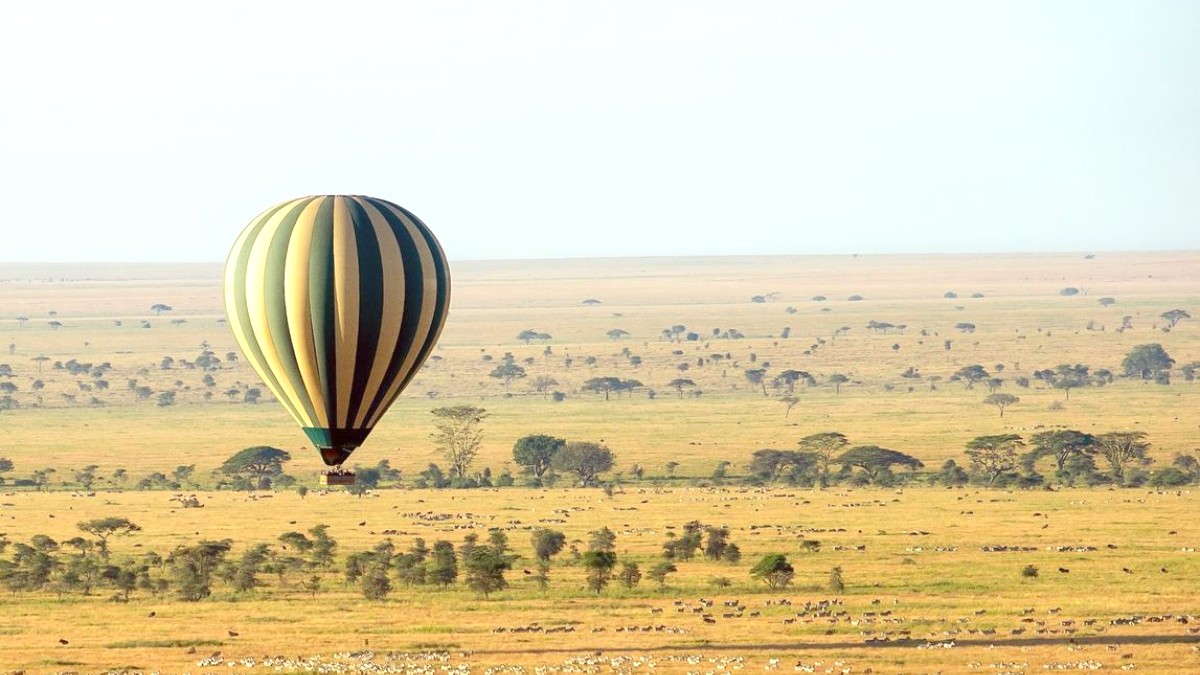
Northern Tanzania, Tanzania
Within Serengeti camps and lodges, cuisine typically offers an international blend with African influences. Menus adapt for foreign palates, presenting European, Asian, and African-inspired dishes for variety and comfort.
Tanzanian cooking makes use of local produce: maize, rice, beans, cassava, and plantains. Meats like beef, goat, and chicken are common. Fresh fruits and vegetables are abundant. Flavors often lean savory with mild spices and herbs.
Meals at safari camps occur in a communal dining area. Many camps serve buffet style, others provide plated multi-course meals.
Breakfast served early; lunch can be a packed picnic or sit-down at camp; dinner typically multi-course in the evening.
Casual dress is acceptable for all meals in safari camps.
A staple cornmeal porridge. Tanzanians eat it with their hands, using it to scoop stews or greens.
Found widely across Tanzania, a staple.
Grilled meat, typically goat or beef. Often served with kachumbari, a fresh tomato and onion salad.
Popular street food and restaurant dish in towns.
Pilau: flavorful spiced rice with meat/vegetables. Wali na Maharage: common rice and beans staple.
Hearty and flavorful, widely available outside the park.
Fried sweet doughnuts, often eaten for breakfast or as a snack.
Sweet rice cakes, often flavored with coconut.
Exclusive fine dining experiences limit to luxury lodges and high-end tented camps within the park. These establishments provide high-quality, often multi-course meals with attentive service.
Mid-range tented camps and lodges provide comfortable dining experiences. They serve a variety of well-prepared meals as part of your safari package.
Budget eateries and street food locations are not available within Serengeti National Park. For budget travelers on camping safaris, a dedicated safari cook prepares meals as part of the package.
International cuisine predominates in all safari camps and lodges.
A diverse culinary experience for guests.
A mix of Western, Asian, and African-inspired dishes is served.
Menus adapt to cater to diverse palates.
Most camps cater to these needs with advance notice.
Gluten-free, dairy-free, nut allergies manageable with prior communication.
Halal meat upon request at some places; Kosher usually needs specialized catering.
Thorough pre-communication with your safari operator is useful.
Thorough pre-communication with your safari operator for all dietary restrictions and allergies is useful.
This information is passed to camp chefs.
Reconfirm your dietary needs directly with the chef or dining manager upon check-in.
Ensures a smooth dining experience.
Beyond standard meal service, Serengeti delivers unique dining moments that elevate your safari.
Enjoy the food at your camp or lodge. It forms an integral part of the safari experience.
These are not typically available within Serengeti National Park.
These activities are not applicable within Serengeti National Park.
No food festivals or large culinary events occur within Serengeti National Park.
The food offered at your camp or lodge forms an integral part of the overall safari experience.
It complements the daily adventure.
Savor the diverse culinary offerings. They enhance the connection with Serengeti's wild environment.
Part of the memorable journey.
Camps and lodges provide high-quality, international cuisine with African influences.
Special dietary needs are accommodated with advance notice and clear communication.
Bush breakfasts, sundowners, and bush dinners offer memorable outdoor dining experiences.
Always communicate any allergies or dietary requirements to your tour operator and lodge staff ahead of time.